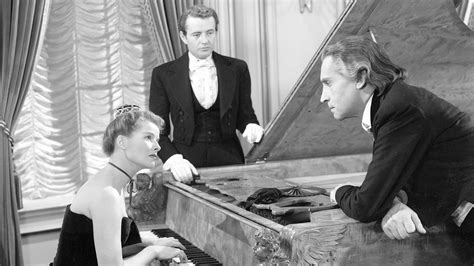10 Ways Piano Enhances Movie Magic

The power of music in cinema is undeniable, and the piano, with its rich history and versatile sound, has become an iconic instrument that enhances the magic and emotion of movies. From classical compositions to modern film scores, the piano's unique ability to evoke a range of feelings has made it an indispensable tool for composers and filmmakers alike. In this article, we delve into the ten ways the piano elevates the cinematic experience, creating unforgettable moments that resonate with audiences long after the credits roll.
1. Emotional Depth and Expressiveness

The piano is renowned for its ability to convey a vast array of emotions. From gentle, soothing melodies that tug at heartstrings to dramatic, thunderous chords that build tension, the piano’s expressive range is unparalleled. Composers often turn to the piano to convey the deepest feelings of their characters, adding a layer of emotional depth that words alone cannot capture.
A prime example is the iconic score of The Godfather, where Nino Rota's use of the piano creates an air of melancholy and nostalgia. The simple, yet haunting piano motif associated with the Corleone family becomes a powerful emotional anchor throughout the film, evoking a sense of family, loyalty, and the tragic weight of their fate.
Real-World Example: Hans Zimmer’s “Time” from Inception
In Christopher Nolan’s Inception, Hans Zimmer’s score features a prominent piano motif that plays a pivotal role in the film’s emotional arc. The haunting melody, played on a solitary piano, conveys the film’s themes of loss, love, and the elusive nature of dreams. As the music swells and builds, it mirrors the characters’ emotional journeys, leaving a lasting impact on audiences.
2. Evoking Period and Setting

The piano’s versatility allows it to transport audiences to different eras and settings with ease. Its classical compositions can instantly evoke the elegance and grandeur of the Victorian era, while its jazz and blues styles can bring to life the vibrancy of the Roaring Twenties or the sultry atmosphere of a smoky jazz club.
In the award-winning film La La Land, the piano takes center stage, creating a nostalgic homage to the golden age of Hollywood musicals. The jazz-infused score, featuring the piano as a prominent instrument, adds a layer of charm and romance to the film's vibrant setting, enhancing its retro appeal.
Setting the Scene: Jazz and the Roaring Twenties
The use of jazz piano in films set during the Roaring Twenties, such as The Great Gatsby, captures the era’s essence. The lively, improvisational nature of jazz perfectly reflects the exuberance and freedom of the time, immersing audiences in the vibrant, decadent world of the 1920s.
3. Building Suspense and Tension
The piano’s dynamic range makes it an excellent instrument for building suspense and tension. A simple, repetitive motif, played with increasing intensity, can create a sense of unease and foreboding, drawing viewers into the narrative and keeping them on the edge of their seats.
Alfred Hitchcock, the master of suspense, often utilized the piano to heighten tension in his films. The ominous piano chords in the shower scene of Psycho are a perfect example, as they build anticipation and create an unforgettable moment of horror and suspense.
Modern Suspense: “The Call” from The Sixth Sense
James Newton Howard’s score for The Sixth Sense features a haunting piano piece titled “The Call.” This simple yet chilling melody, with its dissonant chords and eerie atmosphere, perfectly captures the film’s themes of fear, uncertainty, and the supernatural. It’s a testament to how the piano can create suspense and leave a lasting impression on viewers.
4. Enhancing Dramatic Moments
The piano’s ability to convey drama and pathos is unparalleled. A well-placed piano solo can intensify the emotional impact of a scene, whether it’s a character’s moment of revelation, a heart-wrenching loss, or a triumphant achievement. The piano’s dramatic potential adds an extra layer of depth to these pivotal moments, making them even more memorable.
One of the most famous examples is the piano sequence in The Intouchables, where the main character, Driss, plays a moving rendition of Johann Pachelbel's Canon in D. This unexpected display of emotion and talent adds a layer of complexity to Driss's character and underscores the film's themes of friendship and human connection.
Piano as a Character: La Vie en Rose
In the biopic La Vie en Rose, the piano becomes an integral part of the narrative, mirroring the life and struggles of the iconic singer Edith Piaf. The piano’s presence adds a layer of poignancy and drama to the film, as the music reflects Piaf’s emotional journey, from her humble beginnings to her rise to fame.
5. Creating a Sense of Place

The piano’s unique sound can create a distinct sense of place, instantly grounding viewers in a specific location. Whether it’s the lively piano music of a bustling city street or the soft, melancholy notes echoing through an empty concert hall, the instrument can evoke a sense of atmosphere and environment.
In Moonlight, the piano's presence adds a layer of intimacy and emotional depth to the film's Miami setting. The gentle, soulful piano melodies that accompany the characters' journeys reflect the film's themes of identity, love, and the search for self, enhancing the sense of place and atmosphere.
Local Flavour: Babylon and the Golden Age of Hollywood
The recent film Babylon utilizes the piano to transport viewers back to the Golden Age of Hollywood. The lively, jazz-infused piano score adds a layer of authenticity and glamour to the film’s portrayal of old Hollywood, immersing audiences in the vibrant, hedonistic world of the 1920s entertainment industry.
6. Establishing Character and Theme
The piano can be a powerful tool for character development and thematic exploration. A recurring piano motif associated with a particular character can help to establish their identity and personality, while also exploring key themes of the film.
In The Pianist, the titular character, Wladyslaw Szpilman, is a pianist, and the piano becomes a central element of his character and the film's themes. The beautiful, melancholy piano pieces he plays throughout the film reflect his inner struggles, his resilience, and the devastating impact of war, making his character and the film's themes all the more poignant.
Character Development: Chocolat
In Chocolat, the piano plays a subtle yet significant role in the character development of Vianne Rocher. The gentle, warm piano melodies that accompany her scenes reflect her compassionate nature and her ability to bring comfort and joy to the lives of those around her. The piano’s presence adds a layer of depth to her character, making her a more relatable and compelling protagonist.
7. Providing a Touch of Elegance
The piano’s rich, sophisticated sound can add a touch of elegance and class to any film. Whether it’s a grand piano in a luxurious ballroom or a more intimate setting, the piano’s presence instantly elevates the ambiance and creates a sense of refinement.
In The Grand Budapest Hotel, the piano's elegant melodies accompany the film's opulent setting, adding a layer of sophistication and charm to the story. The piano's presence, along with the film's vibrant color palette and intricate set design, creates an immersive, whimsical experience that transports viewers to a bygone era of European luxury.
Classical Elegance: The King’s Speech
The classical piano compositions in The King’s Speech add a layer of sophistication and historical accuracy to the film. The elegant, refined sound of the piano mirrors the film’s setting and themes, exploring the weight of royalty, the struggle for power, and the importance of communication in a time of crisis.
8. Breaking the Fourth Wall
In certain films, the piano is used to break the fourth wall, creating a direct connection between the characters and the audience. This technique can add a layer of intimacy and engagement, drawing viewers into the narrative in a unique and powerful way.
A notable example is the film Beginners, where the main character, Oliver, often breaks the fourth wall by directly addressing the audience. The piano's presence during these moments enhances the emotional impact, creating a sense of vulnerability and honesty that resonates with viewers.
Direct Connection: The Soloist
In The Soloist, the piano becomes a tool for the character Nathaniel Ayers to connect with others and express his emotions. The beautiful, yet troubled piano melodies he plays throughout the film reflect his struggles with schizophrenia and his journey of self-discovery. By breaking the fourth wall and sharing his music with the audience, Ayers creates a powerful, direct connection that leaves a lasting impact.
9. Musical Innovation and Experimentation
The piano’s versatility allows composers to experiment with unique musical styles and techniques. From modern, minimalist compositions to innovative uses of electronics and sampling, the piano can be a springboard for creative exploration, adding a fresh and contemporary twist to film scores.
In Interstellar, Hans Zimmer's score features an innovative use of the piano, with the instrument taking on a more electronic, synthesized sound. This modern approach to the piano adds a layer of otherworldly mystery and emotion to the film's score, enhancing its futuristic, cosmic themes.
Experimental Fusion: Black Swan
Clint Mansell’s score for Black Swan blends classical piano with electronic and industrial elements, creating a unique, haunting soundscape. This fusion of styles adds to the film’s psychological thriller elements, reflecting the protagonist’s descent into madness and her struggle for perfection.
10. Iconic Film Scores
The piano has been a central component of some of the most iconic and beloved film scores in history. These scores have become synonymous with their respective films, with the piano’s melodies and themes becoming cultural touchstones that resonate with audiences for generations.
John Williams' score for Schindler's List is a perfect example. The haunting piano theme, played by Itzhak Perlman, has become an enduring symbol of the film's powerful message and the tragic events it depicts. The piano's presence adds an extra layer of emotional depth and resonance to this iconic score.
Everlasting Legacy: Moon River from Breakfast at Tiffany’s
Henry Mancini’s “Moon River” from Breakfast at Tiffany’s is another iconic example. This simple, yet beautiful piano melody has become an enduring symbol of the film’s charm, elegance, and the enchanting personality of its lead character, Holly Golightly. It’s a testament to how the piano can create themes that transcend their films and become timeless classics.
How does the piano’s versatility enhance its impact in films?
+
The piano’s versatility allows it to adapt to various film genres, eras, and settings. Its ability to convey a wide range of emotions and create different atmospheres makes it an invaluable tool for composers and filmmakers to enhance the narrative and emotional impact of their stories.
Can the piano be used effectively in modern, action-packed films?
+
Absolutely! While the piano is often associated with more dramatic or emotional scenes, composers have found innovative ways to incorporate the piano into action-packed sequences. Its ability to build tension and create a sense of urgency makes it a powerful addition to these high-octane moments.
What are some other notable films that feature iconic piano scores?
+
There are numerous films with iconic piano scores. Some notable mentions include The Pianist, Amélie, The Untouchables, and The Mission. Each of these films utilizes the piano in unique ways to enhance the storytelling and leave a lasting impact on audiences.



